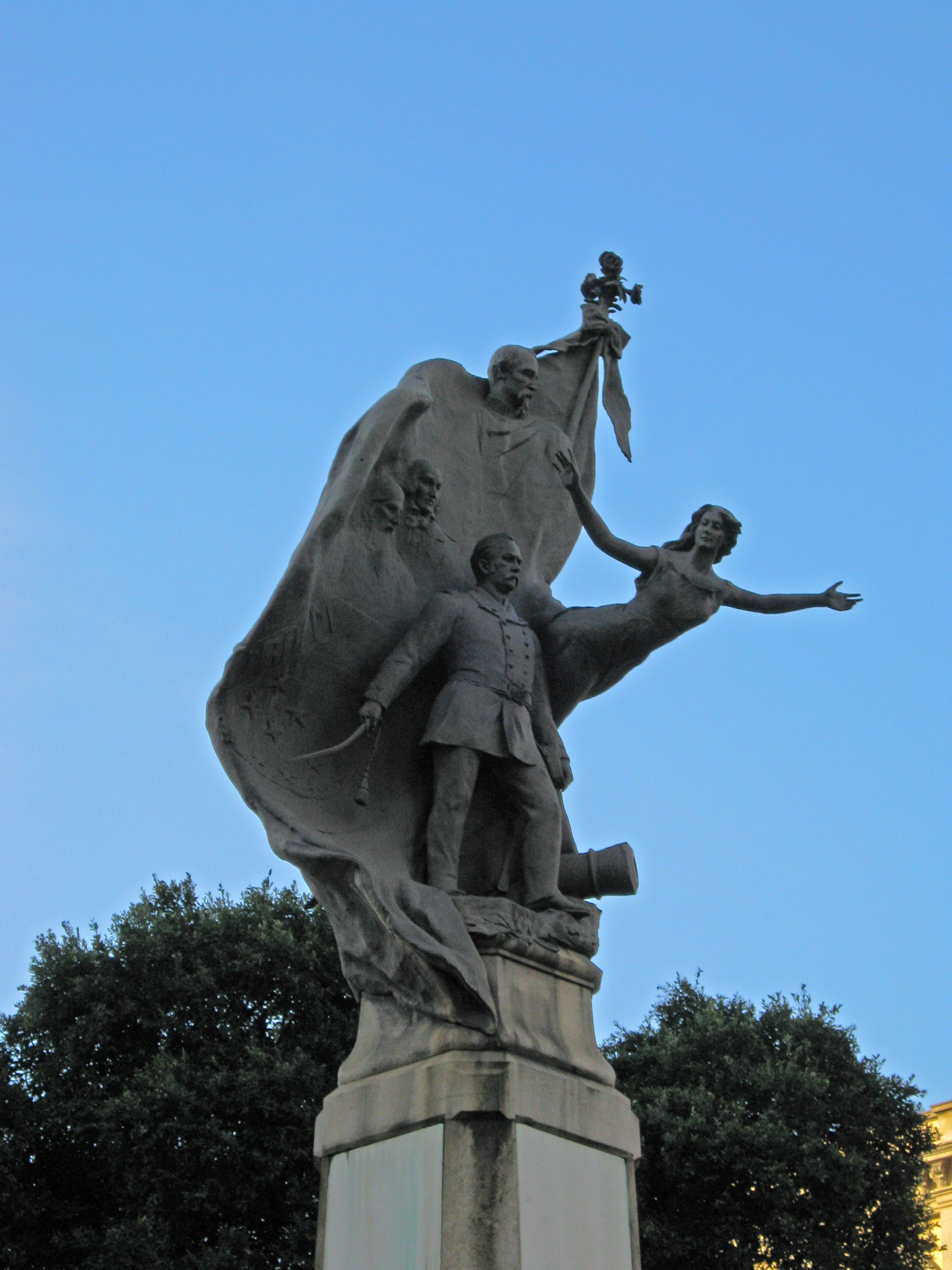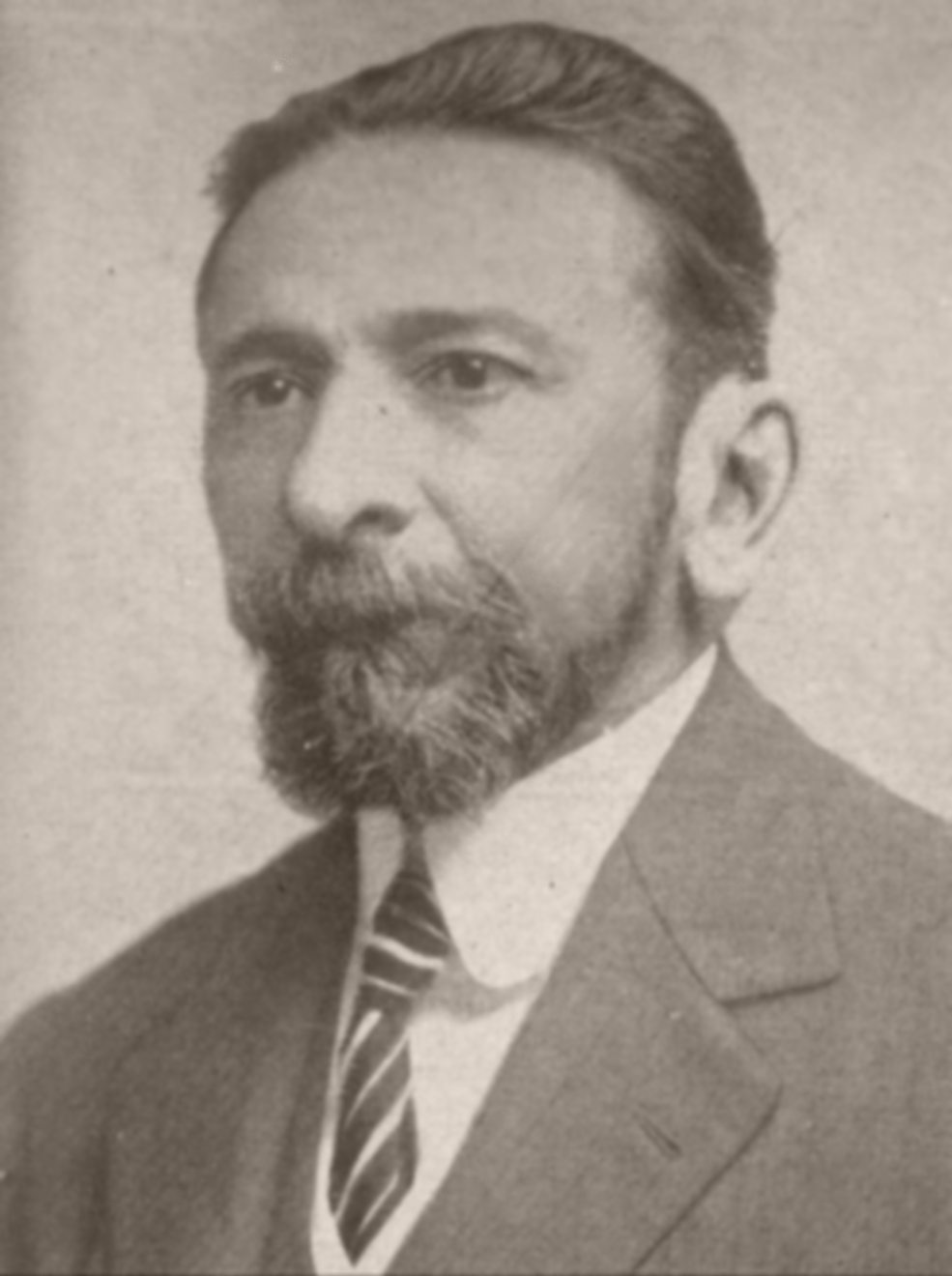|
Guimarães Passos
Sebastião Cícero Guimarães Passos (1867-1909) was a Brazilian journalist and poet. He was born in Maceió, the son of Major Tito Alexandre Ferreira Passos and Rita Vieira Guimarães Passos. He did his primary and preparatory studies in Alagoas. At the age of 19 he went to Rio de Janeiro, where he joined the young bohemians of the time. He started writing for papers such as '' Gazeta da Tarde'', '' Gazeta de Notícias'', ''A Semana'', both under his own name and under a variety of pseudonyms. He was associated with other contemporary figures such as Paula Ney, Olavo Bilac, Coelho Neto, José do Patrocínio, Luís Murat and Artur Azevedo. He also worked as an archivist at the Imperial House. With the proclamation of the Brazilian Republic, he lost his job and began to live solely off his journalistic work. When the Revolta de Armada kicked off in September 1893, he joined the movement. He was part of the revolutionary government installed in Paraná, and fought against Floriano ... [...More Info...] [...Related Items...] OR: [Wikipedia] [Google] [Baidu] |
Maceió
Maceió (), formerly sometimes Anglicised as Maceio, is the capital and the largest city of the coastal state of Alagoas, Brazil. The name "Maceió" is an Indigenous term for a spring. Most maceiós flow to the sea, but some get trapped and form lakes ("lagoas", in Portuguese). There are numerous maceiós and lakes in this part of Brazil; because of this, the city was named Maceió, and the state, Alagoas. The new Zumbi dos Palmares International Airport connects Maceió with many Brazilian cities and also operates some international flights. The city is home to the Federal University of Alagoas. Etymology The name "Maceió" has origin in the term ''tupi maçayó'' or ''maçaio-k'', that means "what it covers the swamp". The Aurélio Dictionary says that the term "maceió" means a temporary and cyclic lagoon that is located at the edge of the sea at the mouth of a watercourse small enough to be interrupted by a silicate bar until the high tide opens the way temporarily cyclically r ... [...More Info...] [...Related Items...] OR: [Wikipedia] [Google] [Baidu] |
Floriano Peixoto
Floriano Vieira Peixoto ( 30 April 1839 – 29 June 1895), born in Ipioca (today a district of the city of Maceió in the State of Alagoas), nicknamed the "Iron Marshal", was a Brazilian soldier and politician, a veteran of the Paraguayan War, and the second president of Brazil. He was the first vice president of Brazil to have succeeded the president mid-term. Election Peixoto was an army marshal when elected vice-president in February 1891. In November 1891, he rose to the presidency after the resignation of Marshal Deodoro da Fonseca, the first president of Brazil. Peixoto came to the presidency in a difficult period of the new Brazilian Republic, which was in the midst of a general political and economic crisis made worse by the effects of the bursting of the Encilhamento economic bubble. As Vice President, he had also served as the President of the Senate. Presidency His government was marked by several revolutions. Peixoto defeated a naval officers' rebellion ... [...More Info...] [...Related Items...] OR: [Wikipedia] [Google] [Baidu] |
1867 Births
Events January–March * January 1 – The Covington–Cincinnati Suspension Bridge opens between Cincinnati, Ohio, and Covington, Kentucky, in the United States, becoming the longest single-span bridge in the world. It was renamed after its designer, John A. Roebling, in 1983. * January 8 – African-American men are granted the right to vote in the District of Columbia. * January 11 – Benito Juárez becomes Mexican president again. * January 30 – Emperor Kōmei of Japan dies suddenly, age 36, leaving his 14-year-old son to succeed as Emperor Meiji. * January 31 – Maronite nationalist leader Youssef Bey Karam leaves Lebanon aboard a French ship for Algeria. * February 3 – ''Shōgun'' Tokugawa Yoshinobu abdicates, and the late Emperor Kōmei's son, Prince Mutsuhito, becomes Emperor Meiji of Japan in a brief ceremony in Kyoto, ending the Late Tokugawa shogunate. * February 7 – West Virginia University is established in Morgantown, West Virginia. * Febru ... [...More Info...] [...Related Items...] OR: [Wikipedia] [Google] [Baidu] |
Brazilian Poets
Brazilian commonly refers to: * Something of, from or relating to Brazil * Brazilian Portuguese, the dialect of the Portuguese language used mostly in Brazil * Brazilians, the people (citizens) of Brazil, or of Brazilian descent Brazilian may also refer to: Sports * Brazilian football, see football in Brazil * Brazilian jiu-jitsu, a martial art and combat sport system *''The Brazilians'', a nickname for South African football association club Mamelodi Sundowns F.C. due to their soccer kits which resembles that of the Brazilian national team Other uses * Brazilian waxing, a style of Bikini waxing * Brazilian culture, describing the Culture of Brazil * "The Brazilian "The Brazilian" is an instrumental piece by the English band Genesis that concludes their 1986 album '' Invisible Touch''. The song features experimental sounds and effects. The band wrote two instrumental pieces for the album, this and "Do the N ...", a 1986 instrumental by Genesis * Brazilian barbecue, known ... [...More Info...] [...Related Items...] OR: [Wikipedia] [Google] [Baidu] |
José Veríssimo
José Veríssimo Dias de Matos (8 April 1857 – 2 December 1916) was a writer, educator, journalist, literary critic, and founding member of the Brazilian Academy of Letters. Biography José Veríssimo was born in Óbidos, Pará, the son of José Veríssimo de Matos and Ana Flora Dias de Matos. His early school-days were spent in Manaus and Belém. In 1869, he was sent to Rio de Janeiro to continue his studies, but had to return to Pará due to poor health. He then devoted himself zealously to journalism and teaching. In 1891, Veríssimo returned to Rio de Janeiro and took a position as professor in Colégio Pedro II Colégio Pedro II is a traditional federal public school, located in the state of Rio de Janeiro, Brazil. It is the third oldest active college in the country, after Ginásio Pernambucano and Atheneu Norte-Riograndense. The school was created .... For some time (1895–1899), concurrently with his scholarly labors, he edited the famous ''Revista Brasileira''. ... [...More Info...] [...Related Items...] OR: [Wikipedia] [Google] [Baidu] |
O Filhote
O, or o, is the fifteenth letter and the fourth vowel letter in the Latin alphabet, used in the modern English alphabet, the alphabets of other western European languages and others worldwide. Its name in English is ''o'' (pronounced ), plural ''oes''. History Its graphic form has remained fairly constant from Phoenician times until today. The name of the Phoenician letter was '' ʿeyn'', meaning "eye", and indeed its shape originates simply as a drawing of a human eye (possibly inspired by the corresponding Egyptian hieroglyph, cf. Proto-Sinaitic script). Its original sound value was that of a consonant, probably , the sound represented by the cognate Arabic letter ع ''ʿayn''. The use of this Phoenician letter for a vowel sound is due to the early Greek alphabets, which adopted the letter as O "omicron" to represent the vowel . The letter was adopted with this value in the Old Italic alphabets, including the early Latin alphabet. In Greek, a variation of the for ... [...More Info...] [...Related Items...] OR: [Wikipedia] [Google] [Baidu] |
Raimundo Correia
Raimundo da Mota de Azevedo Correia (May 13, 1859 – September 13, 1911) was a Brazilian Parnassian poet, judge and magistrate. Alongside Alberto de Oliveira and Olavo Bilac, he was a member of the "Parnassian Triad". He founded and occupied the 5th chair of the Brazilian Academy of Letters from 1897 until his death in 1911. Life Correia was born on a ship anchored in the shores of São Luís, Maranhão, to ''desembargador'' José da Mota de Azevedo Correia and Maria Clara Vieira da Mota de Azevedo Correia. Correia made his secondary course at the Colégio Pedro II, and graduated in Law in 1882, at the Faculdade de Direito da Universidade de São Paulo. He would serve as a successful judge in Rio de Janeiro and Minas Gerais. Correia's first book, ''Primeiros Sonhos'', was published in 1879, and its poems have a strong influence of Brazilian Romantic poets such as Fagundes Varela, Casimiro de Abreu and Castro Alves. However, he would join Parnassianism in 1883, with him book ... [...More Info...] [...Related Items...] OR: [Wikipedia] [Google] [Baidu] |
Madeira
) , anthem = ( en, "Anthem of the Autonomous Region of Madeira") , song_type = Regional anthem , image_map=EU-Portugal_with_Madeira_circled.svg , map_alt=Location of Madeira , map_caption=Location of Madeira , subdivision_type=Sovereign state , subdivision_name=Portugal , established_title=Discovery , established_date=1418-1419 , established_title2=Settlement , established_date2=c. 1425 , established_title3=Autonomous status , established_date3=30 April 1976 , named_for = en, wood ( pt, madeira) , official_languages=Portuguese , demonym= en, Madeiran ( pt, Madeirense) , capital = Funchal , government_type=Autonomous Region , leader_title1=Representative of the Republic , leader_name1=Irineu Barreto , leader_title2=President of the Regional Government of Madeira , leader_name2=Miguel Albuquerque , leader_title3=President of the Legislative Assembly , leader_name3=José Manuel Rodrigues , legislature= Legislative Assembly , national_representation=National ... [...More Info...] [...Related Items...] OR: [Wikipedia] [Google] [Baidu] |




